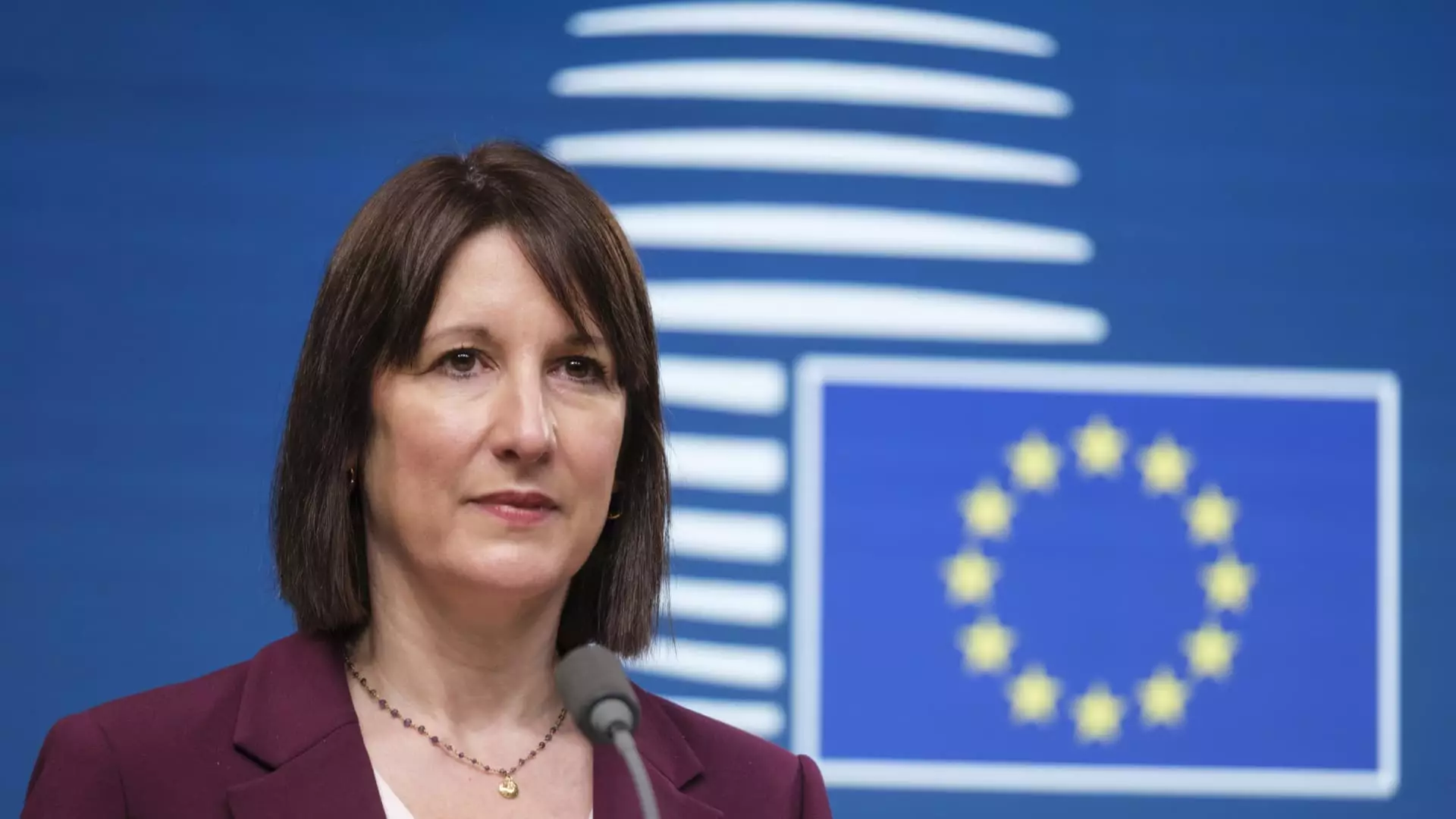As the political landscape shifts in Europe with the impending inauguration of President-elect Donald Trump, the United Kingdom and the European Union are stepping up collaborative efforts to fortify their economic and strategic interests. Following the U.K.’s departure from the EU in 2020, this recent interaction signifies a watershed moment, hinting at an evolving relationship between these familiar yet estranged partners. U.K. Chancellor Rachel Reeves’ visit to Brussels marks the first in-person meeting of U.K. and EU officials in years, reflecting a mutual acknowledgment of shared global challenges.
During her discussions with EU finance ministers, led by Eurogroup President Paschal Donohoe, there was a palpable desire for enhanced cooperation. Speaking informally, an EU official emphasized the alignment of interests amid global turmoil, signaling a pivot toward unified action on issues like Ukraine’s plight, China’s stance, and the unpredictability of U.S. foreign policy under Trump. These shared concerns serve as both a foundation for renewed dialogue and a catalyst for the search for new alliances.
Chancellor Reeves articulated a commitment to three main areas for collaboration: support for Ukraine, the advocacy of free trade, and the strengthening of economic partnerships. While specific outcomes of the Brussels talks remain speculative, there’s a growing recognition that close partnership may provide a buffer against the potential fallout of U.S. protectionism. The possibility of trade tariffs and reduced U.S. support for Ukraine under Trump’s leadership has cast shadows of uncertainty across Europe.
Strategically, the U.K. and EU’s renewed dialogue comes following a tumultuous period marked by decades of complex negotiations that followed Brexit. The current Labour government is eager to “rebuild trust,” as Chancellor Reeves noted, without appearing needy for the EU’s validation or signifying any inclination to rejoin the bloc. The tone is clear: the focus is on partnership without surrendering sovereignty.
A senior diplomatic figure highlighted that the EU could gain advantages by leveraging the U.K. as a conduit to the United States, particularly in light of a historical “special relationship.” This is a vital point, especially when considering Trump’s previous comments about potentially retrenching American interests abroad. Ignacio García Bercero, a former chief negotiator for EU-U.S. trade discussions, further elucidates the strategic necessity of coherent positioning—not just for the EU but also for the U.K. If the EU and the U.K. approach the U.S. collectively, it reduces the risk of misalignment and potential feuds that could widen existing rifts.
None of this is to underestimate the complexities embedded in re-establishing rapport. The backdrop of the U.K’s historical aspirations to carve its path post-Brexit looms large in all discussions. Even as they communicate a desire to forge connections, both sides tread cautiously to avoid igniting fresh divisive points in their already fragile relationship.
The way forward is laden with potential yet fraught with challenges. Keir Starmer’s government, having ascended to power in July, is navigating this transitional phase with a keen understanding that diplomatic overtures need to balance respect for national interests with global expectations. Starmer’s forthcoming meeting with European Council President Antonio Costa underlines the urgency and importance of these discussions, as they seek to align national strategies with broader European goals.
Chancellor Reeves’ straightforward approach—expressing that she was not there to commence negotiations or lay down demands—offers a promising sign. It signals a willingness to foster a constructive atmosphere, encouraging adaptive responses in a world marked by uncertainty and change. By choosing to rebuild trust rather than react out of insecurity, the U.K. and EU could pave the way for a more stable and cooperative future.
As the U.K. steps into this new chapter, the road ahead will undoubtedly demand resilience, flexibility, and a commitment to collaboration. Whether they can navigate these uncharted waters remains to be seen, but their initial strides towards renewed unity in an uncertain global landscape demonstrate a commendable effort to embrace change while holding on to shared principles.


Leave a Reply